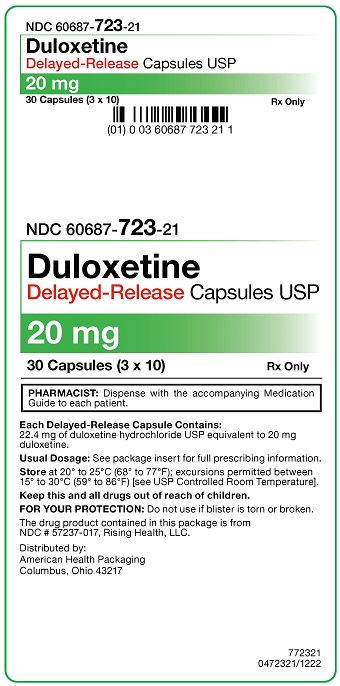Medications play a crucial role in maintaining our health and well-being, but when safety concerns arise, it is vital to stay informed. Recently, the FDA has issued a recall for thousands of bottles of duloxetine, a widely used antidepressant. This development has sparked concern among patients and healthcare providers alike. Understanding the reasons behind the recall and its implications is essential for ensuring patient safety.
The recall of duloxetine highlights the ongoing efforts by regulatory agencies to ensure that medications meet stringent safety standards. As part of this commitment, the FDA continuously monitors drug quality and investigates potential risks. In this case, the presence of a toxic chemical has prompted swift action to protect public health. Below, we delve deeper into the details of the recall, its causes, and what patients need to know.
Potential Health Risks Associated with Duloxetine Recall
Thousands of bottles of the antidepressant duloxetine, which is the generic version of Cymbalta, have been recalled due to the presence of a potentially harmful chemical. The recall involves a significant number of bottles distributed across the country, raising concerns about patient exposure to these contaminated products. The discovery of such contaminants underscores the importance of rigorous testing and quality control in pharmaceutical manufacturing.
Nitrosamine compounds, which are known carcinogens, were identified in some batches of duloxetine. These substances can pose serious health risks if consumed over extended periods. Patients who have been using the affected medication may face increased cancer risk, depending on their dosage and duration of use. Regulatory authorities are urging healthcare providers to inform affected individuals and offer guidance on alternative treatment options.
In response to the recall, the FDA has emphasized the need for vigilance in monitoring drug quality throughout the supply chain. Manufacturers are being encouraged to adopt enhanced testing protocols to prevent similar incidents in the future. By addressing the root causes of contamination, the industry aims to restore consumer confidence and safeguard public health.
Understanding the Scope of the Nationwide Recall
The FDA has initiated a Class II recall for duloxetine delayed-release capsules, citing the presence of nitrosamine impurities as the primary concern. A Class II recall indicates that the product may cause temporary or reversible adverse health effects, although the likelihood of severe harm remains relatively low. Nevertheless, the agency advises caution and recommends that affected parties discontinue use of the recalled medication immediately.
This nationwide recall affects more than 7,000 bottles of duloxetine, with Breckenridge Pharmaceutical, Inc., identified as the distributor responsible for issuing the alert. The company has cooperated fully with regulatory authorities to identify and isolate the affected batches. Affected consumers are urged to return the medication to their pharmacy or contact the manufacturer for further instructions.
Healthcare providers play a critical role in managing the recall process by identifying patients who may have received the contaminated medication. They are encouraged to review patient records, provide necessary follow-up care, and prescribe suitable alternatives if required. Clear communication between healthcare teams and patients is essential to minimize confusion and ensure appropriate action is taken promptly.
Key Information for Patients and Healthcare Providers
With over 233,000 bottles of duloxetine recalled nationwide, the FDA has reiterated the importance of staying informed about the latest developments. Patients currently taking the medication should consult their healthcare provider for personalized advice tailored to their specific needs. It is crucial not to stop taking prescribed antidepressants without medical supervision, as abrupt discontinuation can lead to withdrawal symptoms or worsening mental health conditions.
Pharmacists and healthcare professionals are advised to remain vigilant in identifying affected batches and ensuring that no contaminated products remain in circulation. They should also educate patients about the risks associated with nitrosamine exposure and address any concerns they may have. Resources provided by the FDA, including updated lists of recalled lots and contact information for reporting adverse events, can assist in managing the situation effectively.
For those seeking additional support, several reputable sources offer detailed guidance on navigating medication recalls. Staying connected with trusted healthcare networks and utilizing available resources will help patients make informed decisions regarding their treatment plans. By working together, stakeholders can mitigate the impact of this recall and promote safer medication practices moving forward.

